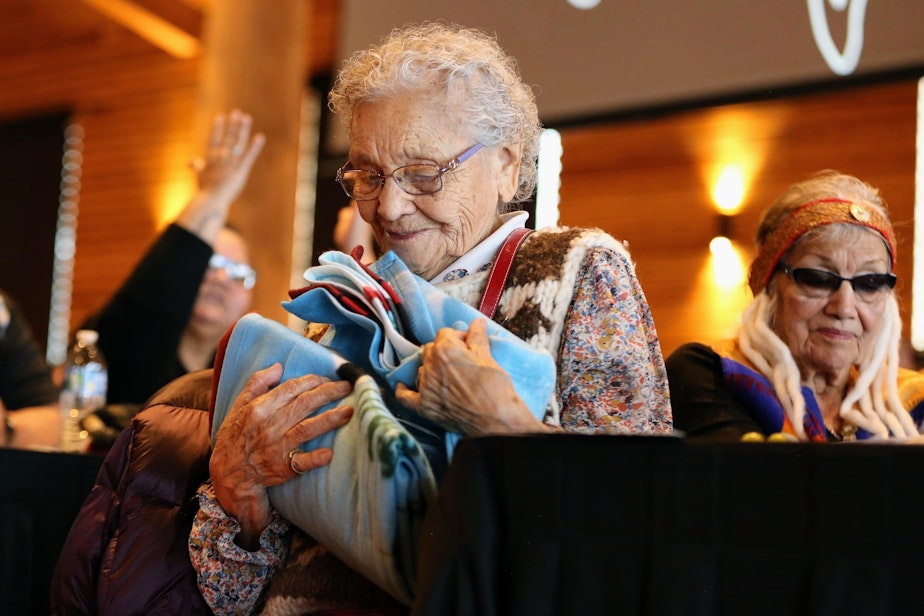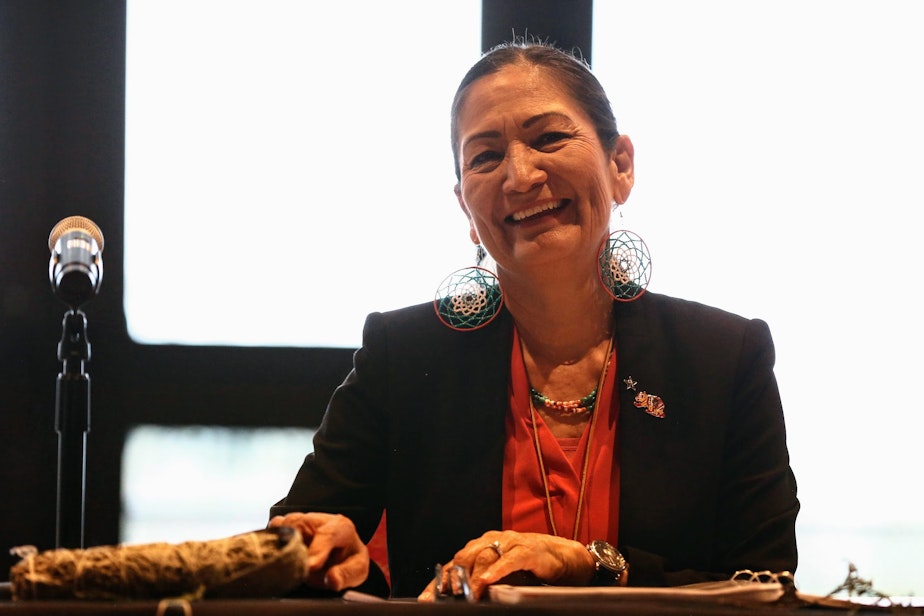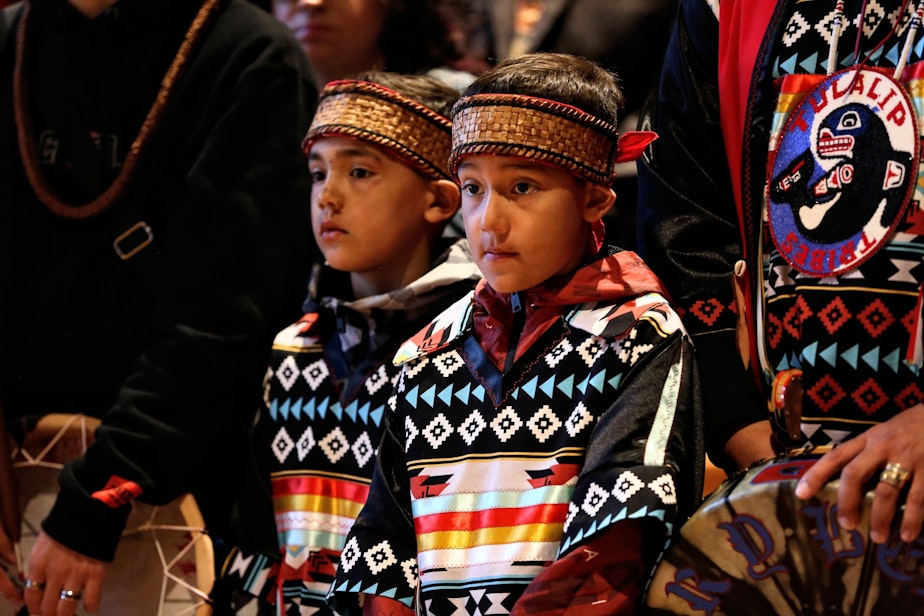'I'm still healing.' Boarding school survivors recount stories of abuse, trauma

U.S. Secretary of the Interior Deb Haaland was at the Tulalip Indian reservation north of Seattle on Sunday, listening to survivors of boarding schools share stories of what they and their families endured.
Jewell James, a Lummi tribal member and master carver, shared what happened to his mother at Cushman Boarding School in Puyallup, during the Depression. His mother ended up at the school at the age of 3, he said, and she was kept in the basement.
"She would have to hide in the corner and hope the rats wouldn’t get her,” James said.
RELATED: 'She would hide in the corner and hope the rats wouldn’t get her'
Washington state was the sixth stop on Haaland’s Road to Healing tour. The year-long cross country endeavor is intended to add to what is in the government record. It also provides Native American, Native Hawaiian, and Alaska Native survivors of the boarding schools a chance to share their stories and provide them access to trauma-informed care.
Haaland is a member of the Pueblo of Laguna, and the first Native American Cabinet secretary in U.S. history.
Sponsored
“My ancestors and many of yours endured the horrors of Indian boarding school assimilation policies carried out by the same department that I now lead,” Haaland said to the crowd inside the Tulalip Gathering Hall. “This is the first time in history that the United States Cabinet Secretary comes to the table with this share of trauma — that is not lost on me.”
The schools were agents of genocide. Many had a cemetery nearby because so many kids died of disease and abuse.

Haaland launched the Federal Indian Boarding School Initiative in 2021, and described it as a broad effort to recognize the legacy of boarding school policies with the goal of addressing their intergenerational impacts.
As part of this effort, she began a nationwide investigation into the schools and has since released the first of two reports highlighting the abuse that took place within the federal schools. She said next steps are to look into the marked and unmarked graves of the children who died at the schools.
Sponsored
In Washington state, there were 15 schools in operation at one point. The last one, St. Mary’s mission school in Omak, closed in the 1970s. However, children from many of the local tribes were forced to attend schools miles away from their family, and their requests to return home denied.
There was a heaviness to Sunday’s event, but a feeling of comfort too. Those who shared were thanked with soft blankets. Everyone shared a hearty lunch of salmon steaks cooked over alder chips. People exchanged hugs.
Ernestine Lane, Lummi, attended the Chemawa Indian School in Salem, Oregon. She said before attending the Listening Tour that day, that she thought she may have been the only living boarding school survivor. She learned that day that she wasn’t.
“We don't talk about it,” said Lane, who is in her 90s. “I'm still healing yet.”



